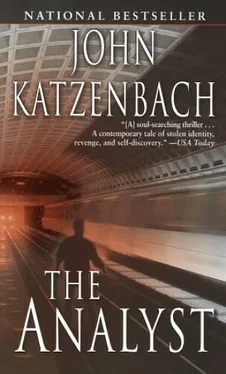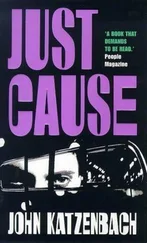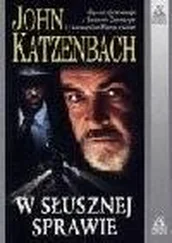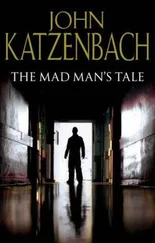Ricky trudged forward, heading toward the entrance, curiously hating the fact that he knew where the medical records were stored.
There was a paunchy middle-aged male clerk, wearing a garish Hawaiian print sport shirt and khaki pants stained with what might have been ink or the remains of lunch, standing at the records storage bank counter who looked at him with a bemused astonishment when Ricky first explained his request.
“You want exactly what from twenty years ago?” he said with undisguised incredulity.
“All the outpatient psychiatric clinic records from the six-month period I worked there,” Ricky said. “Every patient who came in was assigned a clinic number and a file was opened, even if they only came in one time. Those files contain all the case notes that were worked up.”
“I’m not sure those records have been transferred to the computer,” the clerk said reluctantly.
“I’ll bet they have,” Ricky said. “Let’s you and I check.”
“This will take some time, doctor,” the clerk said. “And I’ve got lots of other requests…”
Ricky paused, then thought for a moment, finally picturing how easy it seemed for Virgil and Merlin to get folks to perform simple little acts by waving cash in their direction. There was $250 in his wallet, and he removed $200, placing it on the counter. “This will help,” he said. “Perhaps put me at the head of the line.”
The clerk glanced around, saw that no one else was watching, and scooped up the money from the countertop. “Doctor,” he said, with a small grin, “my expertise is all yours.” He pocketed the cash and then wiggled his fingers in the air. “Let’s see what we can find out,” he said, starting to click entries into the computer keyboard.
It took the remainder of the morning for the two men to come up with a viable list of case file numbers. While they were able to isolate the critical year, there was no corresponding way to determine by computer whether the file numbers represented men or women, and similarly, there wasn’t a code that identified which physician had seen which patient. Ricky’s six months at the clinic had run from March through the start of September. The clerk was able to eliminate files started before and after. Narrowing the selection down further, Ricky guessed that Rumplestiltskin’s mother was seen sometime in the three-month period, over the summer, twenty years earlier. In that time frame, new patient files at the clinic had been opened for two hundred and seventy-nine people.
“You want to find one person,” the clerk said, “you’re gonna have to pull each file and inspect it yourself. I can get ’em out for you, but after that, you’re on your own. It isn’t going to be easy.”
“That’s okay,” Ricky said. “I didn’t expect it would.”
The clerk showed Ricky to a small steel table off to the side of the records office. There was a stiff-backed wooden chair, where Ricky took up his position, while the clerk started to bring the relevant files to him. It took at least ten minutes to collect all 279 different files, stacking them on the floor next to Ricky. The clerk provided him with a yellow legal pad and an old ballpoint pen, then shrugged. “Try to keep ’em in order,” he said, “so I don’t have to file ’em back one by one. And be careful with all the entries, please, like, don’t get documents and notes mixed up from one file to the next. Of course, I’m not guessing that anyone will ever want to see these again anyways, and why we keep ’em is beyond me. But hey, I don’t make the rules.”
The clerk looked at Ricky. “You know who makes the rules?” he asked.
“No,” Ricky replied, as he reached for the first file. “I don’t. The hospital administration, most likely.”
The clerk guffawed, snorting contempt and laughter. “Hey,” he said, as he walked back to his own perch by the computer, “you’re a shrink, doc. I thought your whole thing is to help people make up their own rules.”
Ricky didn’t reply to this, but considered it a wise assessment of what he did. The problem was, he thought, that all sorts of people played by their own rules. Especially Rumplestiltskin. He picked the first file from the top of the first pile, and opened it. It was, Ricky thought abruptly, like opening a folder of memory.
Hours fled around him. Reading the files was a little like standing in a waterfall of despair. Each contained a patient’s name, address, next of kin, and their insurance information, if there was any. Then there would be some typed notes on a diagnosis sheet, which delineated the patient’s assessment. There were also suggested modes of treatment. In a clipped and quick fashion, each name was broken down to their psychological essence. The meager words in the files were unable to hide the bitter truths that lay behind each person’s arrival at the clinic: sexual abuse, rage, beatings, drug addictions, schizophrenia, delusions-a Pandora’s box of mental illness. The outpatient clinic at the hospital had been a vestige of 1960s activism, a do-gooder plan to help the less fortunate, opening the hospital doors to the community. To give back was the operative phrase of the times. The reality had been significantly harsher and substantially less utopian. The urban poor suffered from a vast array of illnesses, and the clinic had rapidly discovered that it was no more than a single finger in a dike sprouting thousands of leaks. Ricky had come to it while completing the final stages of his psychoanalytic training. At least, that had been his official reason. But when he first joined the clinic staff, he had been filled with idealism and the determination of the young. He could remember walking through the doors wearing his distaste for the elitism of the profession he was entering, determined to bring analytic techniques to the wide range of the desperate. This liberal sense of altruism had lasted about a single week.
In his first five days, Ricky had his desk rifled by one patient seeking drug samples; he’d been assaulted by a wild man hearing voices and throwing punches; he’d watched as one session with a young woman was interrupted by an outraged pimp, armed with a straight razor, who managed to slice both his estranged girlfriend across the face and the security guard across the arm before being subdued; and he’d been forced to send a preteen girl to the emergency room for treatment of cigarette burns on her arms and legs and still she would not tell Ricky who had put them there. He remembered her well enough; she was Puerto Rican and had soft, beautiful black eyes the same raven color as her hair, and she had come to the clinic knowing that someone was sick and that soon enough it would be she, as well, appreciating that abuse creates abuse in a way far more profound than any government study of clinical trials could ever understand. She had had no insurance and no way of paying and so Ricky saw her five times, which was what the state would allow, trying to pry information from her, when she knew that by talking about who was torturing her would probably cost her her life. He remembered it was hopeless. And he knew that if she survived, she was still doomed.
Ricky picked up another file and briefly wondered how he’d even managed to last six months at the clinic. He thought to himself that the entirety of his time there he’d spent feeling utterly and completely helpless. Then he recognized that the helplessness he felt at the hands of Rumplestiltskin was not all that different.
With that thought drumming his emotions onward, he tossed himself into the 279 files of the people he’d seen and treated all those years ago.
A good two-thirds of the people he’d seen had been women. Like so many married to poverty, they wore the rags of mental illness as obviously as they did the cuts and bruises of the abuse they received daily. He’d seen everything from addiction to schizophrenia, and he remembered how impotent the work had made him feel. He had fled back to the upper middle class from where he’d come, where low self-esteem, and the problems that accompanied it, could be talked into, if not cure, acceptance. He’d felt stupid trying to talk with some of his clinic patients, as if discussion could solve their mental anguish, when the reality would probably have been better served by a revolver and some guts, a selection, he remembered, a few had chosen, after coming to the recognition that one prison was preferable to another.
Читать дальше












